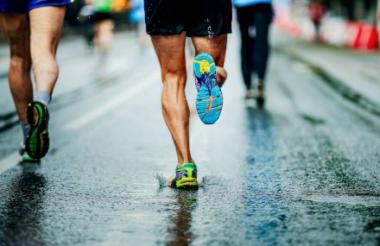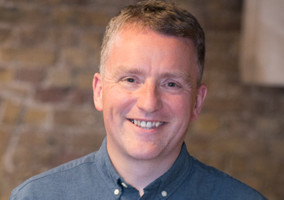Parkrun Global’s conversion into a charity has contributed to the “incredibly complicated” situation it faces during the pandemic, its chief executive has admitted.
Nick Pearson told a live YouTube Q&A last week that Parkrun Global’s charitable objective to improve community health and wellbeing has created a legal requirement which “does frame a lot of our conversations in an entirely different way”.
During the pandemic, Parkrun has faced the challenge of keeping its participants safe from coronavirus while also meeting their charitable commitment to help them stay active.
Pearson acknowledged that the organisation, which became a charity in late 2017, has “come in for criticism” from some runners over the way it has communicated plans for restarting events in England.
‘We are not a running events provider’
The first communal Parkrun event was held in 2004, and the movement has expanded rapidly all over the world. It became a private company in 2015 before Parkrun Global registered as a charity two years later. There are now more than 1,000 UK events every week.
The charitable objectives are “significant”, Pearson said, “because we are not a running events provider that does some good things as a consequence of what it does.
“We are a health and wellbeing charity that is committed to supporting the health and wellbeing of communities through providing physical activity events, opportunities for running, walking and volunteering in communities.”
He added: “My commitment and my responsibility – in actual fact our legal responsibility – is to do everything that we can to support the positive health and wellbeing of those communities.”
Parkrun events were suspended in March. Decisions about when to return were complicated by the government’s “rule of six” announcement last week on social distancing, which came just days after Parkrun Global published its plans to reopen runs in October. The charity is now reconsidering these plans, which affect two million runners and volunteers.
Any decision about reopening events involves “juggling” public safety risks with the potential impact on people who rely on the charity for their health, Pearson said, claiming that tens of thousands of people “have no access to physical activity without Parkrun”.
Double the dissatisfied runners
The event also heard that the proportion of Parkrun members telling the charity that they were unlikely to return to events when they restart had doubled.
Tom Williams, the chief operating officer at Parkrun Global, explained that the charity surveys a representative sample of runners every week.
He said that while a large majority of Parkrunners still want to return, the proportion had fallen from 80% on the Friday before the rule of six was announced to 71% afterwards.
He added that the 7% of people who were unlikely or very unlikely to return had grown to 16%.
Political access
Williams told that event that Parkrun Global had worked closely with the government on when it might be safe for outdoors sports events to restart.
Outlining the charity’s access to Whitehall’s leading figures during the crisis, he said: “We had spent a couple of months working with the government, working with the deputy chief medical officers, both of whom are Parkrunners and understand Parkrun.”
Williams added later: “We have attempted to get [expertise] from the highest level we can.
“In the early days of the pandemic we had a long phone conversation with Jonathan Van-Tam, one of the deputy chief medical officers, who was generous enough to give us an incredible amount of his time at what must have been, for him, one of the most challenging times in his career.
“More recently we have been in more contact with Jenny Harries, the other deputy chief medical officer. Both understand Parkrun very well.”
Related articles










